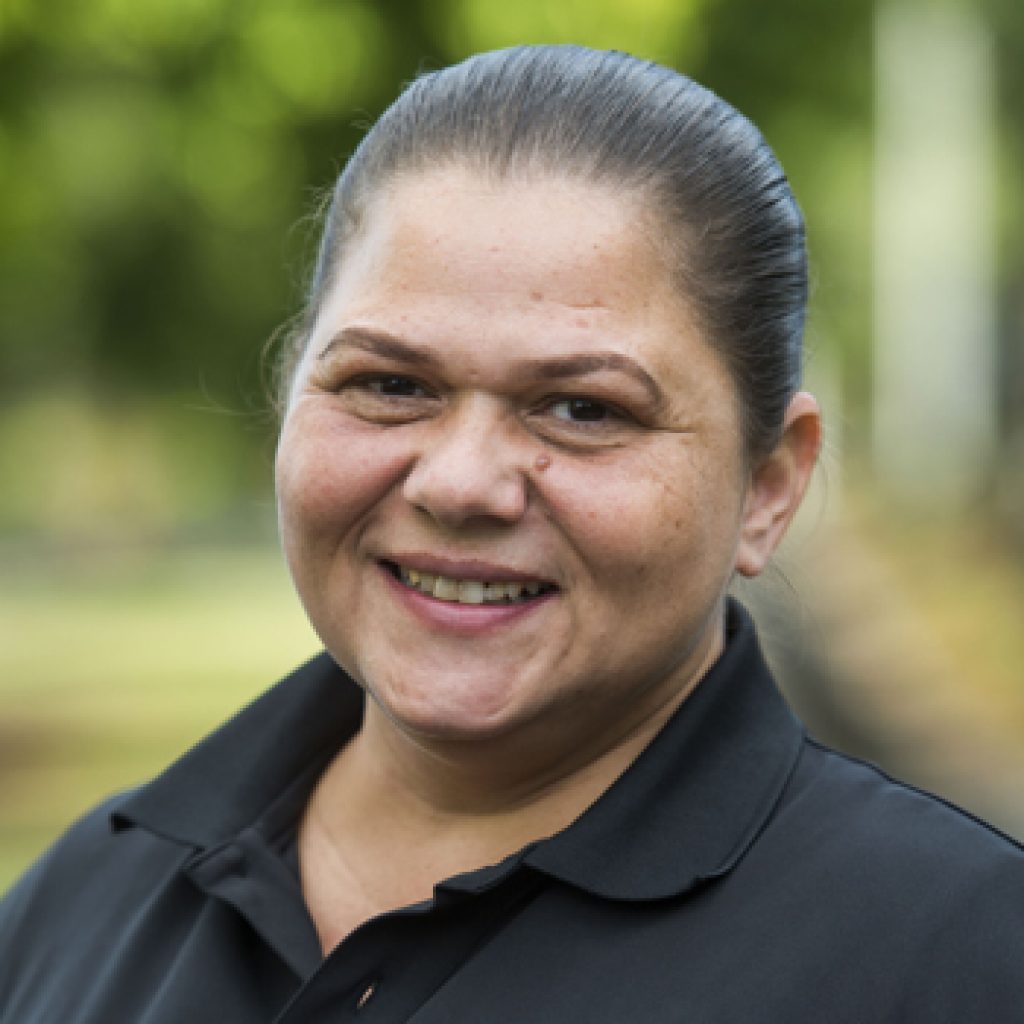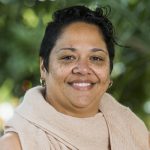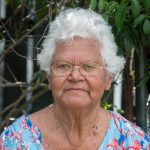
This year’s theme is great as I think is important for young kids just to see Indigenous women succeed. My daughters have a lot of female role models now, and are very proud of their heritage.
Kathy is a proud Wannyi woman of Lawn Hill and works with Common Ground Queensland.
I was born in Mount Isa and moved to the Sunshine Coast when I was young. We ended up moving back to Mount Isa when I was 15 and I left for Brisbane just before turning 20 years of age.
My Mum was white and my Dad was Indigenous. Mum and Dad separated when I was a baby though, which meant that I didn’t have much to do with the Indigenous side of my family. It’s something I feel I missed out on in my life.
At work, I’m the cleaning supervisor and function administration assistant with Common Ground Queensland. I can honestly say I truly love working with this organisation. I’ve been at Common Ground for six years and one day, it was six years yesterday actually! It’s the best place I’ve ever worked. It’s just a wonderful organisation to work for, it’s a lovely place to work and it feels good to be giving something back.
Before Common Ground, I was an HR assistant and payroll officer for a construction company. My role was to work for a company that was all about profit, but now I feel that I’m actually helping people to have a nice place to live. A lot of the visitors who come to the building are Indigenous and are so polite and always call me Aunty or Sis. People deserve a nice place to live and I think it’s a great environment for our tenants to have access to all the services like 24-hour security and the tenancy support workers.
Outside of work, I had eight years off to raise my two beautiful children. I have two girls – one is nearly 20 and the other one is 14 years old.
When my daughters were in Primary School I helped out a lot with their school’s Indigenous program. They had a yarning circle that I was involved in and my girls really loved it. It’s important to me that the girls understand their culture, especially since I missed out on this growing up.
I admire my Mum for raising six kids on her own.
The one thing she passed on to me was that you’ve got to work. That you’ve got to work for what you want, it doesn’t just get handed to you.
Other than having my daughters live at home with me, I do have a young girl living with me who’s Indigenous and she was in and out of foster care. She’s lived with me and my girls on-and off-for the last couple of years. Sometimes it can be difficult but it’s very rewarding. I’ve known her since Primary School as she was friends with my eldest daughter. She’s stayed with other friends before, but she always comes back to us, she’s more comfortable with us.
I’ve always had someone living with me other than family. I think it might be just the way that we are, I couldn’t imagine turning someone away. If someone’s hungry or needs somewhere to live, I wouldn’t be able to say no. I think it might be a cultural thing.

What does NAIDOC Week mean to you?
I think it’s just about recognising Indigenous people in the community and it’s a bit like closing the gap, just bringing awareness. I don’t think a lot of people are aware of the disadvantages and just how hard it is for some Indigenous people to overcome certain things.
I think this year’s theme, Because of Her We Can, was a great idea.
Growing up, seeing people like Cathy Freeman, Deborah Mailman in the media was really important to me. My kids now watch and admire Jessica Mauboy, so having those sorts of people in the media is important for young kids to see Indigenous women succeed.
My daughters are proud of their heritage. My eldest is employed by Woolworths under an Indigenous program and my youngest won an Indigenous Award in Primary School. My children are very interested in their heritage, it’s just hard when I haven’t had the contact with my Indigenous side of the family
Did any women leave an impression on you growing up?
The only woman I can think of is when I was a teenager. My mum used to work at an aged care facility and my Mum used to bring home an elderly Indigenous lady called Granny Diamond. I just remember being fascinated by her.
We didn’t know how old she was, but she kept telling us that she was 100. Being a teenager and a bit naughty, I thought she was just wonderful because she was a real character. We all thought she couldn’t walk and we had to help her go to the toilet and around the house. But after a while, money and cigarettes used to go missing. One night I was hiding in my bedroom and I looked out and saw her get out of her wheelchair and walk around. I thought to myself that when I’m old I want to be like that. She was just cheeky.
So Mum would bring home Indigenous people who didn’t have a family and Granny Diamond was one of those and would tell us stories.
Maybe my Mum’s generosity and open home might have influenced me to take people in throughout my life.


